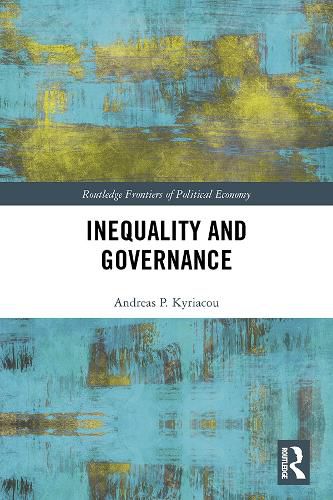Inequality and Governance
Andreas P. Kyriacou

Inequality and Governance
Andreas P. Kyriacou
Governance matters for social welfare. Better governed countries are richer, happier and have fewer social and environmental problems. Good governance implies that public sector agents act impartially. It manifests itself in the form of equality before the law, an independent and professional public administration and the control of corruption.
This book considers how economic inequality - both interpersonal and interethnic - can affect the quality of governance. To this end, it brings together insights from three different perspectives. First, a long-run historical one that exploits anthropological data on pre-industrial societies. Second, based on experimental work conducted by social psychologists and behavioural economists. Third, through cross-country empirical analysis drawn from a large sample of contemporary societies.
The long-run perspective relates the inequality-governance relationship to societal responses in the face of uncertainty - responses that persist today in the guise of cultural traits that vary across countries. The experimental evidence deepens our understanding of human behaviour in unequal settings and in different governance contexts. Together, the long-run perspective and the experimental evidence help inform the cross-country analysis of the impact of economic inequality on governance. This analysis suggests the importance of both economic inequality and culture for the quality of governance and yields several policy implications.
This item is not currently in-stock. It can be ordered online and is expected to ship in approx 2 weeks
Our stock data is updated periodically, and availability may change throughout the day for in-demand items. Please call the relevant shop for the most current stock information. Prices are subject to change without notice.
Sign in or become a Readings Member to add this title to a wishlist.


